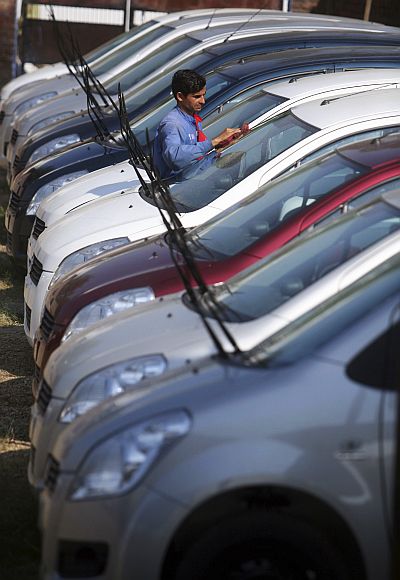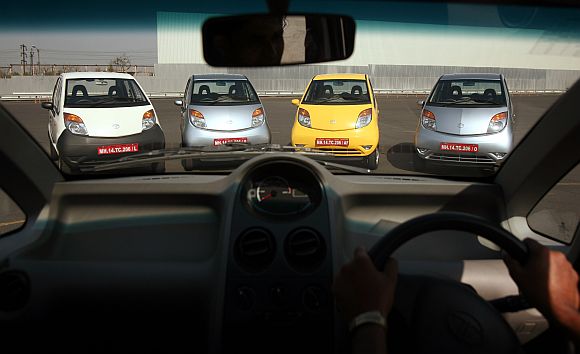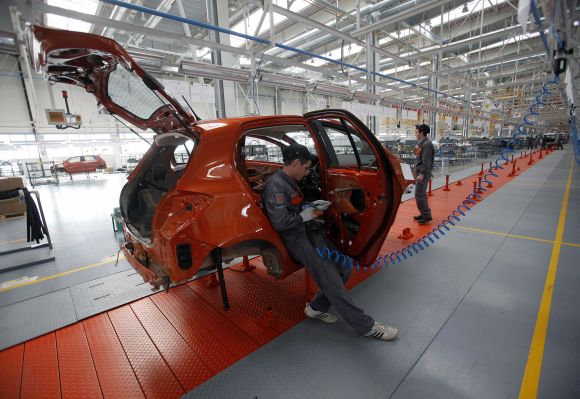 | « Back to article | Print this article |
India to be world's third largest auto market by 2016: IHS
India will become the third largest automotive market in the world by 2016 ahead of Japan, Germany and Brazil, riding on its domestic automotive sales, according to IHS Automotive, a global market information provider.
Although the economic growth vulnerability and lower sentiment resulted in market slowdown in 2012 and 2013, India is expected to regain strong growth trend from 2014 onwards, said the Colorado-based firm.
"We expect that by 2016, vehicle sales would surpass Brazil, Germany and Japan making India the third largest market," IHS Senior Principal Economist Charles Chesbrough said.
In 2012, China, the US and Japan were the top three global automotive markets and India was ranked six after Brazil and Germany in the fourth and fifth positions respectively.
Click NEXT to read more…
India to be world's third largest auto market by 2016: IHS
Sounding bullish on the Indian market in the mid to long term, IHS said: "Investment reform policy will induce better environment for domestic and foreign enterprises. India light vehicle production (is) expected to reach 7 million by 2020."
The implications for auto demand are huge in India and the country has been moving along the penetration path, it said.
"With demand for vehicles declining in most mature markets in the face of the global recession, high fuel costs and urban driving restrictions, the industry is turning its attention more strongly towards the expanding middle classes in the new powerhouse of China, India, Brazil, Russia and other growing nations," Chesbrough said.
The growth of automobile sales will not be restricted only to mass market vehicles, IHS said.
Click NEXT to read more…
India to be world's third largest auto market by 2016: IHS
"The favourable Indian market conditions are acting as a catalyst for luxury and premium carmakers, which are receiving impetus from new launches. The top-end carmakers have posted double-digit growth for the quarter ended June 30, 2013," HIS Director James Chao said.
According to IHS, in terms of production volume, India would move to fourth position in 2020 ahead of Germany and Brazil from its currently sixth spot.
IHS said as India develops, its citizens acquire wealth; demand for automobiles will increase as the need of personal transportation rises.
"It may take a little longer in India because they do not have the infrastructure...but we know about the personal behaviour as people gain wealth, they want freedom, ability to go where they want to go and when they want to go," Chesbrough said.


